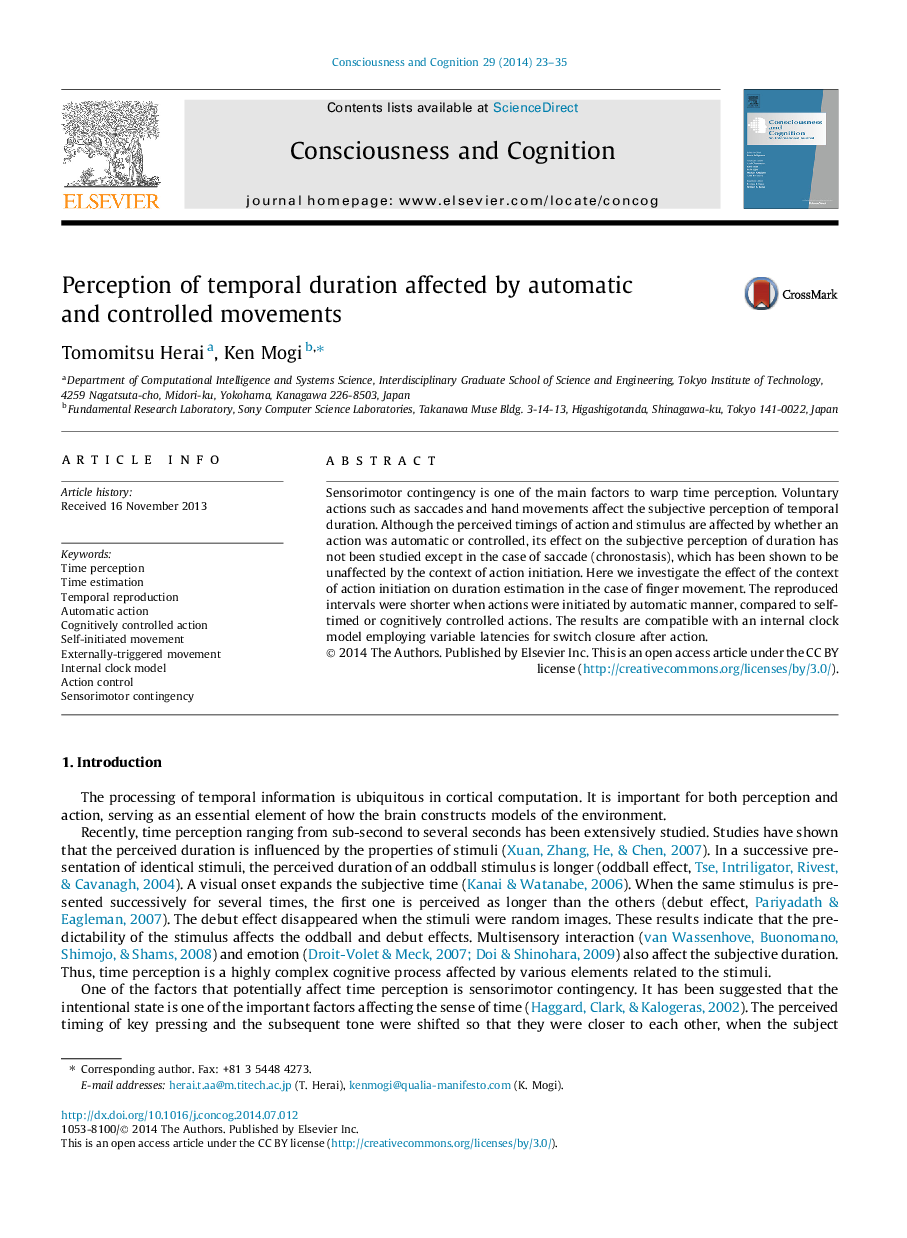| Article ID | Journal | Published Year | Pages | File Type |
|---|---|---|---|---|
| 7289751 | Consciousness and Cognition | 2014 | 13 Pages |
Abstract
Sensorimotor contingency is one of the main factors to warp time perception. Voluntary actions such as saccades and hand movements affect the subjective perception of temporal duration. Although the perceived timings of action and stimulus are affected by whether an action was automatic or controlled, its effect on the subjective perception of duration has not been studied except in the case of saccade (chronostasis), which has been shown to be unaffected by the context of action initiation. Here we investigate the effect of the context of action initiation on duration estimation in the case of finger movement. The reproduced intervals were shorter when actions were initiated by automatic manner, compared to self-timed or cognitively controlled actions. The results are compatible with an internal clock model employing variable latencies for switch closure after action.
Related Topics
Life Sciences
Neuroscience
Cognitive Neuroscience
Authors
Tomomitsu Herai, Ken Mogi,
